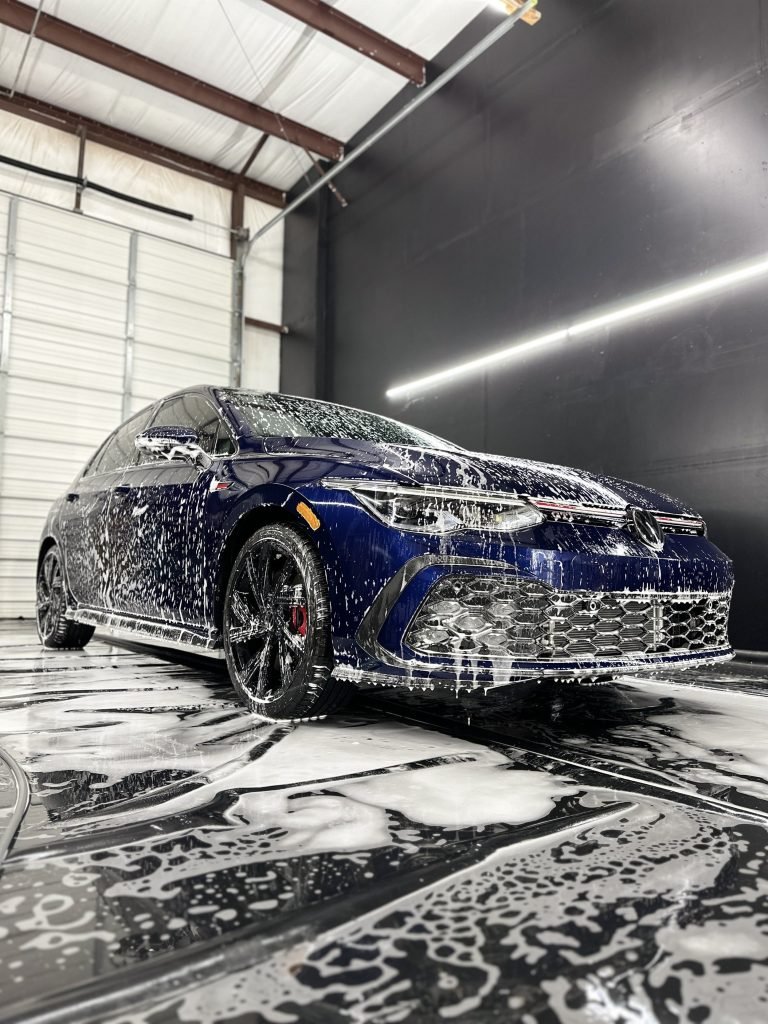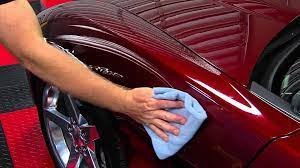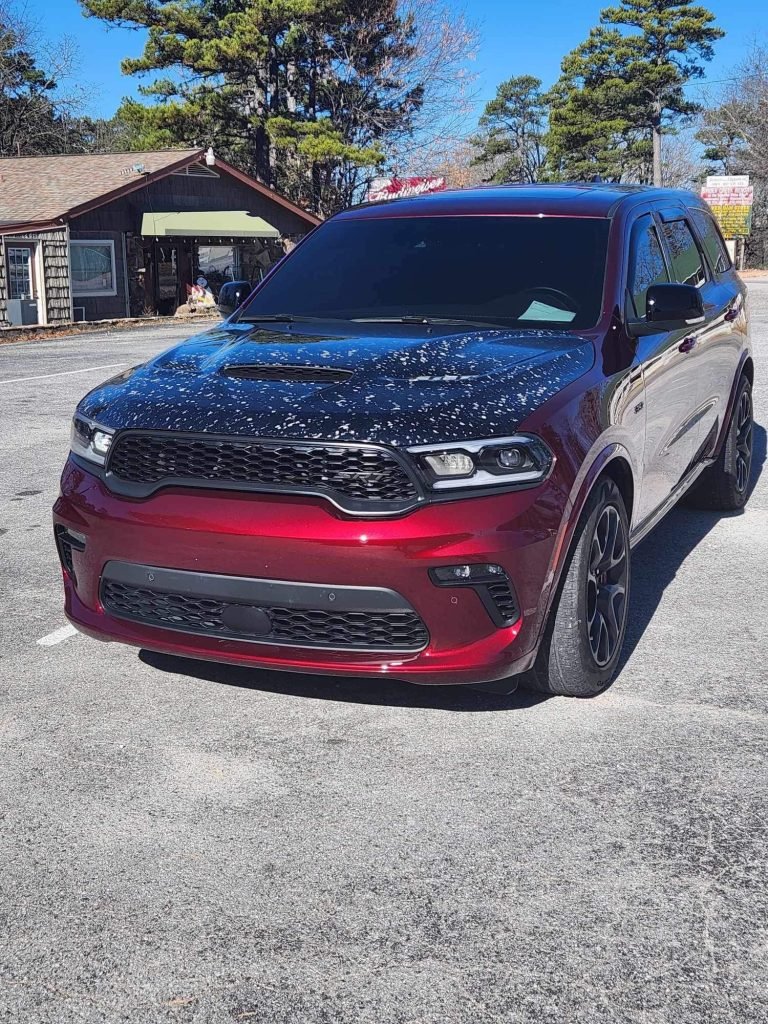As the summer sun beats down, your car faces increased risks of damage from the intense heat. From paint deterioration to mechanical failures, the soaring temperatures can take a toll on your vehicle’s performance and appearance. However, with proper care and maintenance, you can shield your car from the adverse effects of summer weather. This comprehensive guide outlines essential steps to safeguard your vehicle, ensuring it remains in top condition throughout the season’s heatwaves.
Wash the Vehicle
Regularly washing your car isn’t just about maintaining its appearance; it’s also a crucial step in protecting its paint and bodywork. During the summer, dust, pollen, and other environmental pollutants can accumulate on the surface, posing a threat to the paint’s integrity. By washing your car with a gentle, pH-balanced car wash soap and using a soft sponge or microfiber cloth, you can effectively remove these contaminants without causing scratches or swirl marks. Pay close attention to areas prone to buildup, such as the front grille and lower body panels, and rinse thoroughly to ensure all residue is removed.
Decontaminate the Paint
In addition to regular washing, consider giving your car’s paint a deeper clean with a clay bar treatment or specialized decontamination products. These products are designed to remove stubborn contaminants like tar, tree sap, and bug residue that can’t be eliminated through washing alone. By gently gliding a clay bar over the surface of your car, you can lift embedded contaminants, leaving behind a smooth, clean finish. Be sure to follow the manufacturer’s instructions carefully and use plenty of lubrication to prevent marring the paint.
Top Off All Fluids
Your car relies on various fluids to operate smoothly, and the summer heat can accelerate their consumption and evaporation. Before hitting the road for your summer adventures, take the time to check and refill all essential fluids, including engine oil, coolant, brake fluid, power steering fluid, and windshield washer fluid. Insufficient fluid levels can lead to engine overheating, brake failure, and other potentially serious issues, so it’s essential to keep them topped off to the manufacturer’s recommended levels.
Test the Battery
Few things can ruin a summer road trip faster than a dead battery. High temperatures can cause battery fluid to evaporate more quickly, leading to decreased performance and a higher risk of failure. To avoid being stranded roadside on a sweltering day, test your battery’s charge and inspect it for any signs of corrosion or leakage. If your battery is more than three years old or shows any signs of weakness, consider replacing it preemptively to ensure reliable starting power throughout the summer months.
Change the Oil & Filter
The summer heat places extra demands on your car’s engine, making regular oil changes essential for maintaining optimal performance and longevity. Over time, engine oil breaks down and becomes less effective at lubricating and protecting vital components. By adhering to the manufacturer’s recommended oil change intervals and using the appropriate viscosity oil for summer conditions, you can help prevent engine wear, improve fuel efficiency, and ensure smooth operation, even in the hottest weather.
Evaluate The Alignment
Proper wheel alignment is crucial for maintaining stability, handling, and tire wear, particularly during the summer months when roads can become more uneven and challenging to navigate. Misaligned wheels can lead to uneven tire wear, reduced fuel efficiency, and compromised handling, so it’s essential to have your alignment checked regularly by a qualified technician. If you notice any signs of uneven tire wear, steering pull, or vibration, schedule an alignment inspection to address the issue promptly and prevent further damage.
Check Tire Pressure
Hot weather can cause tire pressure to fluctuate, leading to overinflation, underinflation, or even blowouts if left unchecked. To ensure safe and efficient driving, it’s essential to monitor your tire pressure regularly and adjust it to the manufacturer’s recommended levels as needed. Be sure to check the pressure when the tires are cold, as driving can increase tire temperature and skew the readings. Properly inflated tires not only improve fuel efficiency and handling but also reduce the risk of tire damage and premature wear.
Inspect The Breaks
Summer heat can put added stress on your car’s braking system, making regular inspections essential for maintaining optimal performance and safety. Inspect brake pads, rotors, calipers, and brake fluid for signs of wear, corrosion, or leakage, and address any issues promptly to prevent brake failure or diminished stopping power. If you notice squealing, grinding, or pulsating sensations when braking, have your brakes inspected by a qualified technician to determine the cause and take corrective action as needed.
Replace Air Filters
Clean air filters are essential for ensuring optimal engine performance and fuel efficiency, particularly during the summer months when air quality can suffer due to increased pollen and dust levels. Check both the engine air filter and cabin air filter regularly and replace them if they appear dirty or clogged. A clean air filter allows for better airflow to the engine, improving combustion efficiency and reducing emissions, while a clean cabin air filter helps maintain a comfortable interior environment by filtering out pollutants and allergens.
Test the A/C
A malfunctioning air conditioning system can turn summer drives into sweaty, uncomfortable ordeals. Before the heat becomes unbearable, test your car’s AC system for any issues such as weak airflow, strange noises, or unusual odors. If you notice any signs of trouble, such as warm air blowing from the vents or ice buildup on the evaporator, have your AC system inspected by a qualified technician to diagnose and repair the problem promptly. Regular maintenance, including refrigerant recharge and component lubrication, can help keep your AC running smoothly all summer long.
Examine the Wipers
Summer storms can pop up unexpectedly, reducing visibility and making driving hazardous without properly functioning windshield wipers. Inspect your wiper blades for signs of wear, cracking, or deterioration, and replace them if they show any signs of damage. Additionally, check the windshield wiper fluid reservoir and top it off with a summer-specific windshield washer fluid that contains additives to help repel bugs and debris and improve cleaning performance. Clear visibility is essential for safe driving, especially during summer rain showers or dust storms, so don’t neglect your wipers.
Get a Dashboard Sunshade
Protecting your car’s interior from the sun’s harsh rays is essential for preserving its appearance and comfort. Invest in a quality dashboard sunshade to shield your dashboard, steering wheel, and upholstery from UV damage, fading, and cracking. A sunshade also helps lower the interior temperature of your car by reflecting sunlight away from the windows, making it more comfortable to enter and reducing the need for excessive AC use. Choose a sunshade that fits your car’s windshield snugly and can be easily folded or stored when not in use for maximum convenience and effectiveness.
Need help?
For professional assistance with your vehicle maintenance needs, don’t hesitate to reach out to K&M Coatings. Our experienced team is dedicated to providing top-quality services to keep your car in excellent condition, even during the hottest summer days. Whether you need routine maintenance, repairs, or expert advice, we’re here to help. Contact us today to schedule an appointment or learn more about our services. Your satisfaction and safety are our top priorities, and we look forward to serving you.







